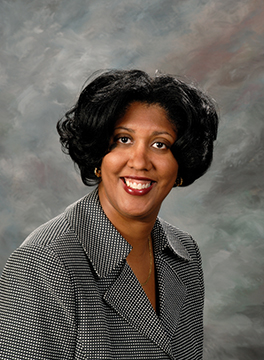Camille Clare helps to increase diversity in medical field
1992 alumna is associate dean of diversity and inclusion at New York Medical College

As a first-generation college student with immigrant parents and a practicing OB/GYN clinician, Camille A. Clare ’92 understands the struggles that many face in navigating college and medical school. As associate dean of diversity and inclusion for the School of Medicine and associate professor of obstetrics and gynecology at New York Medical College (NYMC), she’s helping students underrepresented in medicine overcome hurdles to success.
Clare’s work for NYMC focuses on recruiting Black, Hispanic and Asian-Pacific Islander students. She’s collaborating with NYMC colleagues to develop an antiracism curriculum. In addition, the school is launching a program to give marginalized or economically disadvantaged students an opportunity to start medical school early and receive help with study skills.
“We’ve had a number of successes over the years,” Clare says. “We’ve been able to increase the number of underrepresented in medicine students to about 20% of our class. There are more accommodations for students with disabilities. We’ve increased our focus on the LGBT population. We’ve gone from one hour to five hours of curriculum in which our students are learning from [LGBTQ] patients.”
The effort to create a diverse and inclusive learning environment isn’t just about having more people of color walking the halls of a medical school. Being exposed to different races and cultures is great preparation for being in a clinical setting where patients will come from a variety of backgrounds.
“Our goal is to develop a culturally competent physician workforce,” Clare says. “How can everyone up their standards and overcome implicit biases? How do you hold your colleagues accountable when they say or do something wrong?
“What we saw with the unfortunate death of George Floyd and others is that students held us to task in terms of what is the school doing,” Clare says. “How can we best support them and address microaggressions in the learning environment?”
Clare credits her time in Binghamton University’s Charles Drew Pre-Health Society for helping her along the path through medical school. It’s a setting where peers help each other. Having been in the working world for nearly three decades, she still has the spirit of helping and continues to be involved with Binghamton’s chapter. The society aims to recruit, retain and support students of underrepresented ethnic groups as they pursue careers.
“I joined during my first year at Binghamton, and a lot of people didn’t really know about the organization,” Clare says. “We rechartered it, and it really changed our lives. Most of us were interested in medical school, so we did peer workshops on things like applying to med school, the MCAT and financial aid. We also took road trips and attended open houses to learn about schools we wanted to apply to.
“Most of us got into medical school. I’m committed to continuing the legacy because I was impacted so much by meeting my peers. Having that peer support with rigorous course work as pre-med is so critical and helpful for this journey.”

